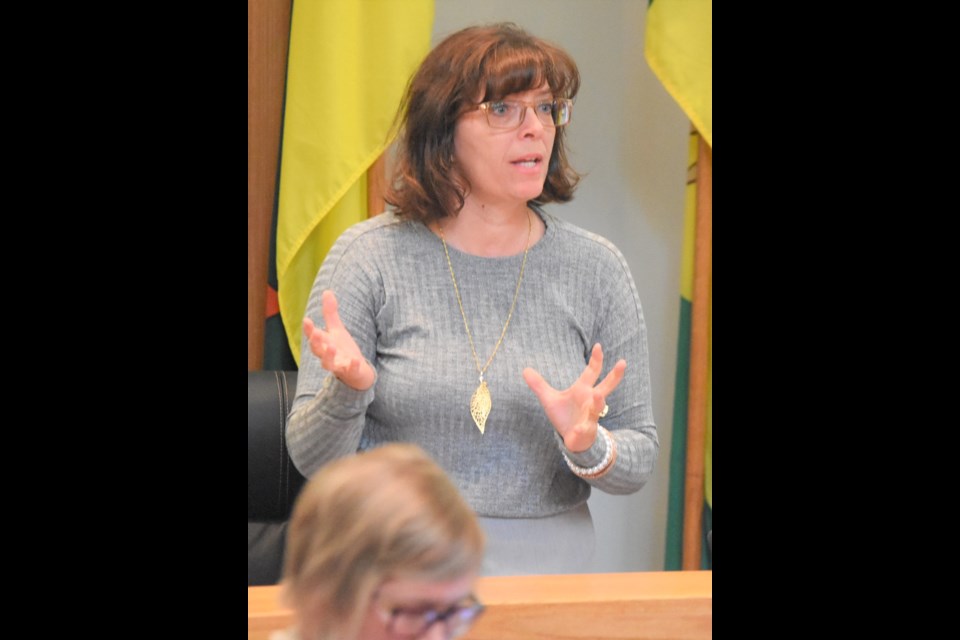A report about the 2018 audited financial statements gave city council a good idea of the economic health and vitality of the municipality, while it also generated concerns for a few councillors.
City administration presented the 2018 audited financial statements during council’s July 22 regular meeting. Council voted unanimously to approve the report, while it also voted in favour to have administration provide another report to answer councillors’ questions.
Coun. Chris Warren was absent.
The report has been posted to the City of Moose Jaw’s webpage or here.
Landfill reserves
The amount of money in the landfill closure reserve at the end of last year was more than $9.7 million, compared to $8.8 million two years ago. However, no money was set aside last year in the landfill replacement reserve, compared to $948,517 two years ago.
This caught the eye of Coun. Scott McMann, who wondered if the $948,517 was added into the closure costs and if a landfill replacement reserve should be re-established.
Finance director Brian Acker will have to answer that question when he returns from vacation, said city manager Jim Puffalt, along with McMann’s followup question about curbside garbage pickup fees.
An important document
“I’m certainly not happy that we can’t have our questions answered this evening. As Coun. McMann indicated, it is an important document,” said deputy mayor Coun. Dawn Luhning.
Luhning didn’t think it was wise to table the report, but thought a followup document with answers was appropriate.
Long-term debt
Moose Jaw’s long-term debt at the end of last year was $63.6 million, which was an increase of $30 million after the municipality borrowed money to fund the Buffalo Pound transmission line and improve municipal reservoirs.
It is unfortunate that there is debt, said Coun. Heather Eby. But it’s probably better to have debt and a home than to have no debt and no assets. Furthermore, simply because an organization has no debt does not mean it is moving forward.
“Our debt limit is high, but we are doing work and we are seeing progress in things that need to be done … ,” she added. “I’m OK with where it’s at.”
Projects such as the Buffalo Pound transmission line are generational, so hopefully this won’t be seen again, said Coun. Crystal Froese. Taking out a loan to upgrade the reservoirs also ensures Moose Jaw has water security.
Taxation statistics
Taxation revenue per capita is “a totally irrelevant statistic,” since it “produces the misleading notion that Moose Jaw has low taxes,” said Coun. Brian Swanson.
A report from city administration indicated Moose Jaw had the lowest taxes paid per resident last year compared to four other cities in Saskatchewan.
Based on municipal taxation of more than $27.9 million and a population of 33,890, the taxation per capita was $824.23. However, if investment earnings were factored in, that taxation decreased to $112.05 per resident.
Moose Jaw does not collect taxes on a per capita basis, it collects taxes on assessed property values, said Swanson. When fewer taxes are collected compared to other municipalities, it’s because there are properties in Moose Jaw that have lower assessment values and because Moose Jaw has a smaller tax base.
“It actually proves the opposite of what is attempted to be shown by a statistic,” he added.
Economic vitality
Swanson turned his attention to a section in the report that highlighted revenue and expense areas that did not meet budget, saying these areas show how economically healthy Moose Jaw is or should be.
Some of those line items included:
• Municipal taxation for 2018 was budgeted at $27.9 million, but came in under budget by $613,822
• Licences and permits revenue was budgeted for $1.47 million, but was under budget by $213,506 due to parking meter revenues being in lower than expected
• Law enforcement revenues was budgeted at $1.1 million, but came in over budget by $273,426 due to more policing services and provincial funding revenues.
• Fines and penalties revenue was budgeted for $1.8 million but came in $482,369 over budget due to revenues from automatic speed enforcement cameras being higher than estimated
Swanson added there is nothing so far this year to indicate these areas will turn around and improve the economic health of the municipality.
The next regular meeting is Aug. 12.




